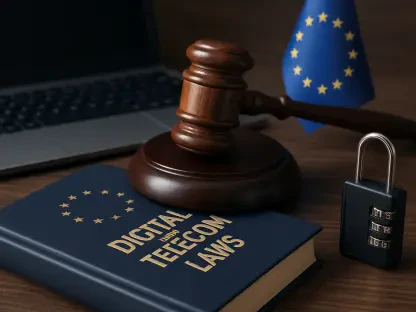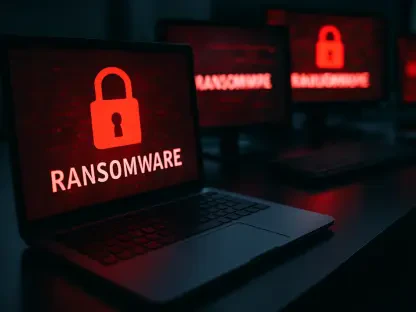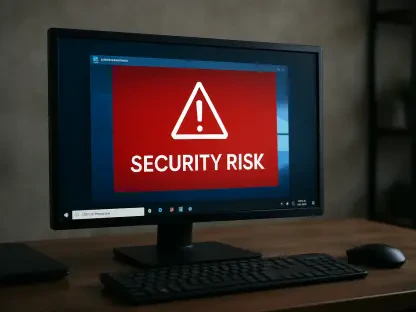Rupert Marais, an in-house Security specialist with expertise in cybersecurity strategies, shares valuable insights on the role of whistleblower programs within organizations. As ethics and compliance become increasingly vital across the globe, understanding how to align these programs effectively with investigatory units is crucial for driving meaningful outcomes.
Can you explain the importance of aligning global whistleblower programs with investigations teams in an organization?
Aligning whistleblower programs with investigation teams is essential to ensure that reports are handled swiftly and efficiently. It facilitates a coordinated response, allowing organizations to address issues proactively while minimizing potential risks. This alignment also enhances credibility and trust in the program, encouraging more employees to come forward.
How do leading Ethics & Compliance teams navigate the various regulatory requirements worldwide?
Leading teams often employ a robust framework tailored to different regional regulations. They stay informed about changes in laws and work closely with legal experts to interpret complex requirements. Flexibility and local expertise are vital to not only meeting but exceeding compliance standards globally.
What are some key challenges you face when aligning internal processes related to whistleblower programs?
One major challenge is ensuring consistent application of policies across diverse organizational cultures and geographical locations. Differences in local laws and varying levels of employee awareness can complicate process alignment. It requires continuous education and adaptation to align internal processes effectively.
Could you provide examples of how data is used to evaluate and improve whistleblower programs?
Data plays a crucial role in identifying trends and areas for improvement. By analyzing reports, organizations can uncover systemic issues, measure response times, and assess the effectiveness of follow-up actions. This data-driven approach empowers organizations to make informed decisions and refine their programs.
Can you discuss the potential outcomes of a well-structured whistleblower program?
A well-structured program leads to increased transparency and accountability within the organization. It encourages a culture of openness, where employees feel safe to report without fear of retaliation. Ultimately, it can lead to improved organizational integrity and a stronger reputation.
How can organizations ensure they are compliant with the latest regulations concerning whistleblower policies?
To remain compliant, organizations must continuously update their policies and training programs. Regular audits and evaluations are also essential. By fostering partnerships with experts in regulatory compliance, companies can ensure their programs stay current with evolving laws.
What are some best practices for creating an effective whistleblower program that leads to real results?
Key practices include ensuring confidentiality, providing multiple reporting channels, and enabling timely and thorough investigations. Engaging leadership to reinforce the importance of the program and providing education and training are also critical for success.
How do Ethics & Compliance teams address cultural differences in their global whistleblower programs?
Cultural sensitivity is crucial when implementing these programs globally. Teams often adapt communication strategies to resonate with local norms and values while ensuring consistency in the core principles of the program. Providing localized support and training can help bridge cultural gaps.
In what ways can whistleblower programs and investigative processes be integrated to work seamlessly?
Integration requires defined procedures and collaboration between departments. Shared tools and platforms can streamline information flow, while regular meetings ensure that any overlaps or gaps in the process are addressed promptly, enhancing coordination between teams.
How do leading organizations measure the success of their whistleblower programs?
Success is often measured by analyzing program metrics such as reporting rates, response time, resolution outcomes, and employee trust levels. Feedback from employees through surveys can also provide insights into the program’s effectiveness and areas needing improvement.
What role does technology play in implementing and managing whistleblower programs?
Technology is integral to providing secure, anonymous reporting channels and managing case data efficiently. Advanced analytics can also offer insights to improve response strategies and compliance. A robust technology platform enhances program accessibility and effectiveness.
How can companies encourage employees to trust and use the whistleblower program effectively?
Building trust involves clear communication about the program’s purpose and protections offered to whistleblowers. Transparency about how reports are handled and follow-up on outcomes encourages participation. Reinforcing a culture that values integrity is key to fostering trust.
What steps can be taken to protect whistleblowers from retaliation within the company?
Implementing strict policies against retaliation and providing legal and psychological support to whistleblowers are vital steps. Ensuring that all employees, especially leaders, understand these protections helps maintain a safe reporting environment.
Can you describe some common pitfalls organizations might encounter when setting up a whistleblower program?
Common pitfalls include inadequate training, lack of clear procedures, and insufficient anonymity measures. Organizations may also fail to communicate effectively about the program’s importance, resulting in low engagement and trust among employees.
How have Ethics & Compliance teams adapted their whistleblower programs in response to emerging global challenges or trends?
Teams have embraced technological advancements, like AI and machine learning, to enhance data analysis and reporting mechanisms. They also continually update their programs to reflect changes in global regulations and societal expectations, ensuring that programs remain relevant and effective.
What is your forecast for the future of whistleblower programs?
As globalization continues, whistleblower programs will increasingly integrate technology for better scalability and accessibility. There will be a heightened focus on preemptively resolving issues through data insights, and organizations will need to ensure that these programs are adaptable to ever-changing regulatory landscapes.









